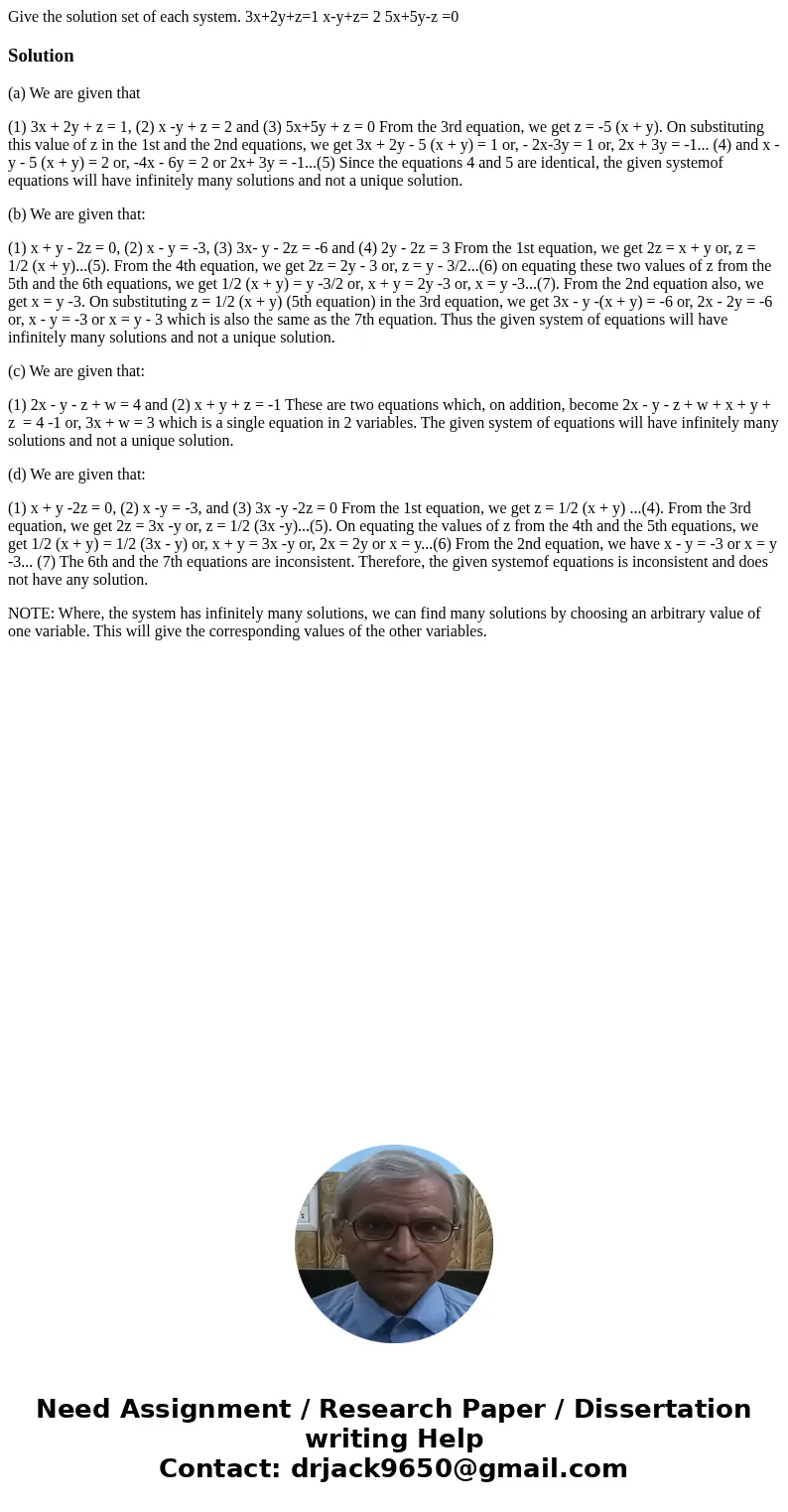Give the solution set of each system 3x2yz1 xyz 2 5x5yz 0Sol
Solution
(a) We are given that
(1) 3x + 2y + z = 1, (2) x -y + z = 2 and (3) 5x+5y + z = 0 From the 3rd equation, we get z = -5 (x + y). On substituting this value of z in the 1st and the 2nd equations, we get 3x + 2y - 5 (x + y) = 1 or, - 2x-3y = 1 or, 2x + 3y = -1... (4) and x - y - 5 (x + y) = 2 or, -4x - 6y = 2 or 2x+ 3y = -1...(5) Since the equations 4 and 5 are identical, the given systemof equations will have infinitely many solutions and not a unique solution.
(b) We are given that:
(1) x + y - 2z = 0, (2) x - y = -3, (3) 3x- y - 2z = -6 and (4) 2y - 2z = 3 From the 1st equation, we get 2z = x + y or, z = 1/2 (x + y)...(5). From the 4th equation, we get 2z = 2y - 3 or, z = y - 3/2...(6) on equating these two values of z from the 5th and the 6th equations, we get 1/2 (x + y) = y -3/2 or, x + y = 2y -3 or, x = y -3...(7). From the 2nd equation also, we get x = y -3. On substituting z = 1/2 (x + y) (5th equation) in the 3rd equation, we get 3x - y -(x + y) = -6 or, 2x - 2y = -6 or, x - y = -3 or x = y - 3 which is also the same as the 7th equation. Thus the given system of equations will have infinitely many solutions and not a unique solution.
(c) We are given that:
(1) 2x - y - z + w = 4 and (2) x + y + z = -1 These are two equations which, on addition, become 2x - y - z + w + x + y + z = 4 -1 or, 3x + w = 3 which is a single equation in 2 variables. The given system of equations will have infinitely many solutions and not a unique solution.
(d) We are given that:
(1) x + y -2z = 0, (2) x -y = -3, and (3) 3x -y -2z = 0 From the 1st equation, we get z = 1/2 (x + y) ...(4). From the 3rd equation, we get 2z = 3x -y or, z = 1/2 (3x -y)...(5). On equating the values of z from the 4th and the 5th equations, we get 1/2 (x + y) = 1/2 (3x - y) or, x + y = 3x -y or, 2x = 2y or x = y...(6) From the 2nd equation, we have x - y = -3 or x = y -3... (7) The 6th and the 7th equations are inconsistent. Therefore, the given systemof equations is inconsistent and does not have any solution.
NOTE: Where, the system has infinitely many solutions, we can find many solutions by choosing an arbitrary value of one variable. This will give the corresponding values of the other variables.

 Homework Sourse
Homework Sourse